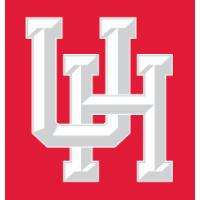What do they do?
Measure large areas of the Earth's surface using satellite observations, global navigation satellite systems (GNSS), light detection and ranging (LIDAR), or related sources.
Also known as:
Geodesist, Geodetic Advisor, Geodetic Engineer, Geodetic Survey Director, Geodetic Surveyor, Land Surveyor, Licensed Land Surveyor
-
0.8%
Change
Ranks #50 in job growth rate100Job Openings
Ranks #20 in net job growth
-
Texas A&M University-Corpus Christi
Corpus Christi, TX
-
University of Houston
Houston, TX
Looking for colleges that offer a specific major? Use the College Match Tool to find your best-matched schools and discover your estimated Net Price!
- Doctorate or Professional Degree (3%)
- Master's degree (10%)
- Bachelor's degree (64%)
- Associate's degree (10%)
- Some college, no degree (9%)
- High school diploma equivalent (4%)
- Less than high school diploma (1%)
People in this career often have these skills:
- Mathematics - Using mathematics to solve problems.
- Reading Comprehension - Understanding written sentences and paragraphs in work-related documents.
- Active Listening - Giving full attention to what other people are saying, taking time to understand the points being made, asking questions as appropriate, and not interrupting at inappropriate times.
- Critical Thinking - Using logic and reasoning to identify the strengths and weaknesses of alternative solutions, conclusions, or approaches to problems.
- Complex Problem Solving - Identifying complex problems and reviewing related information to develop and evaluate options and implement solutions.
- Writing - Communicating effectively in writing as appropriate for the needs of the audience.
- Judgment and Decision Making - Considering the relative costs and benefits of potential actions to choose the most appropriate one.
- Speaking - Talking to others to convey information effectively.
- Active Learning - Understanding the implications of new information for both current and future problem-solving and decision-making.
- Monitoring - Monitoring/Assessing performance of yourself, other individuals, or organizations to make improvements or take corrective action.
People in this career often know a lot about:
- Mathematics - Knowledge of arithmetic, algebra, geometry, calculus, statistics, and their applications.
- Engineering and Technology - Knowledge of the practical application of engineering science and technology. This includes applying principles, techniques, procedures, and equipment to the design and production of various goods and services.
- Geography - Knowledge of principles and methods for describing the features of land, sea, and air masses, including their physical characteristics, locations, interrelationships, and distribution of plant, animal, and human life.
- Computers and Electronics - Knowledge of circuit boards, processors, chips, electronic equipment, and computer hardware and software, including applications and programming.
- English Language - Knowledge of the structure and content of the English language including the meaning and spelling of words, rules of composition, and grammar.
- Physics - Knowledge and prediction of physical principles, laws, their interrelationships, and applications to understanding fluid, material, and atmospheric dynamics, and mechanical, electrical, atomic and sub-atomic structures and processes.
People in this career often have talent in:
- Oral Comprehension - The ability to listen to and understand information and ideas presented through spoken words and sentences.
- Written Comprehension - The ability to read and understand information and ideas presented in writing.
- Oral Expression - The ability to communicate information and ideas in speaking so others will understand.
- Written Expression - The ability to communicate information and ideas in writing so others will understand.
- Inductive Reasoning - The ability to combine pieces of information to form general rules or conclusions (includes finding a relationship among seemingly unrelated events).
- Information Ordering - The ability to arrange things or actions in a certain order or pattern according to a specific rule or set of rules (e.g., patterns of numbers, letters, words, pictures, mathematical operations).
- Mathematical Reasoning - The ability to choose the right mathematical methods or formulas to solve a problem.
- Flexibility of Closure - The ability to identify or detect a known pattern (a figure, object, word, or sound) that is hidden in other distracting material.
- Deductive Reasoning - The ability to apply general rules to specific problems to produce answers that make sense.
- Number Facility - The ability to add, subtract, multiply, or divide quickly and correctly.
- Near Vision - The ability to see details at close range (within a few feet of the observer).
- Category Flexibility - The ability to generate or use different sets of rules for combining or grouping things in different ways.
- Problem Sensitivity - The ability to tell when something is wrong or is likely to go wrong. It does not involve solving the problem, only recognizing that there is a problem.
People in this career often do these activities:
- Analyze operational data to evaluate operations, processes or products.
- Survey land or bodies of water to measure or determine features.
- Calculate geographic positions from survey data.
- Maintain operational records or records systems.
- Verify mathematical calculations.
- Direct surveying activities.
- Analyze physical, survey, or geographic data.
- Explain project details to the general public.
- Gather physical survey data.
- Update technical knowledge.
- Train personnel on proper operational procedures.
- Prepare operational reports.
- Evaluate designs or specifications to ensure quality.
This page includes data from:

 Occupation statistics: USDOL U.S. Bureau of Labor Statistics Occupational Employment Statistics
Occupation statistics: USDOL U.S. Bureau of Labor Statistics Occupational Employment Statistics






